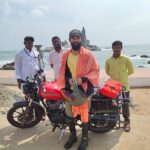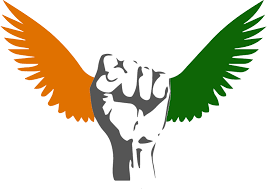 Every year, thousands of people from South Asian countries are forced to flee their homes because of persecution and conflict and enter India in search of a safe life. When victims of such violence are women and children, the exploitation is compounded by their vulnerability. They live a life of fear, humiliation and trauma and their only escape is to leave behind everything so that they could just live in a safe environment. Despite the scale of this crisis, many refugee groups remain unnoticed. Their needs are escalating, and their voices fall on deaf ears.
Every year, thousands of people from South Asian countries are forced to flee their homes because of persecution and conflict and enter India in search of a safe life. When victims of such violence are women and children, the exploitation is compounded by their vulnerability. They live a life of fear, humiliation and trauma and their only escape is to leave behind everything so that they could just live in a safe environment. Despite the scale of this crisis, many refugee groups remain unnoticed. Their needs are escalating, and their voices fall on deaf ears.
Today, lakhs of such “Silent’ refugees who have fled Pakistan, Bangladesh, Afghanistan, Sri Lanka, Myanmar, are living in scattered camp and non-camp settings all over India, and few in Sri Lanka and Bangladesh. Some of the migrations are as recent as the last year, while some communities like Chakmas and Hajong have been striving to integrate into the mainstream for the last six decades.
“I met a family that came to India on March 18th, 2020. All they have is a legitimate desire like you and me to live a good life, and they have a potential to fight the odds.”
– Kiran Chukkapalli
On November 5th, 2020, Kiran Chukkapalli, an avid social activist, and founder of Think Peace Organization embarked on a three-month motorcycle ride across India, all by himself, covering more than 10,000 km across the length and breadth of India from Kanyakumari through Gujarat, Delhi, Arunachal Pradesh and back to Kanyakumari on 26th January, 2020. The goal of the journey was to meet refugees living in different parts of India, understand the extent of their crisis, unveil their stories, and understand their issues.
“To know, understand and acknowledge the problem is the first step towards a change. Our goal is to focus on the refugees who’s suffering rarely makes international headlines.”
– Kiran Chukkapalli
In his journey through India, he met refugees from different countries who have undertaken a long gruesome journey from their homes in search of a safe life, a home to live and some work to do. Kiran’s yatra covered 18 states and close to hundred refugee camps. He met thousands of women and children who encountered harsh and humiliating conditions that forced them to flee, in search of safety and dignity. Although they feel safe, they are unable to meet their most basic needs and live deplorable conditions.
With a firm resolve to bring attention of all stakeholders to such “Silent” refugee crisis, and to take up socioeconomic programs, Kiran Chukkapalli initiated the Refugee Aid Project (RAP) under the organization, Think Peace. RAP focuses on exposing the violence faced by such silent refugees and bring attention of policymakers on these key areas that have been neglected but need attention.
“The objective of RAP is to ensure that no one – individual, no group, no government, can take away the basic human right to live with dignity, freedom, equality, justice, and peace. We need to protect our women and children.”
– Kiran Chukkapalli
The project will also focus on welfare programs that help the refugees to restart their life with hope and dignity in the camps of India, Sri Lanka and Bangladesh.
“I believe that our experience with tribal empowerment programs will benefit us in identifying bottlenecks in the potential integration of the refugee community. We are working on an action plan to empower refugees through socio-economic programs.”
– Kiran Chukkapalli
Think Peace is a not-for-profit organization working with Schedule Tribes in India for 10 years. The organization runs socio-economic programs in education, healthcare, and livelihood in tribal regions of India.




